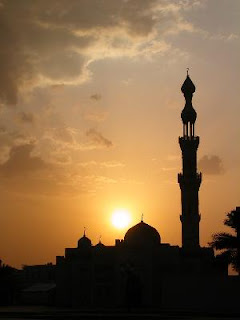Describing the ways in which ignorant and negligent people waste away the precious occasion of Ramadan for the pursuit of entertainment and social pleasures, Hazrat Khalifatullah (aba) points to the very many benefits of fasting as an Islamic practice, and exhorts all believers to be conscious of the Divine commandments and Prophetic teachings to fulfill duties in this regard. Indeed, an occasion for the believer to focus on the big picture of spiritual life and therefore, to abandon his vain pursuits of earthly pleasures, in favour of the enduring favours of forgiveness of sins and the open-gates of Paradise. Noting that the many disasters striking the world around us is indeed a grave sign of the Hour (Qiyamah) promised in our sacred books, Hazrat Saheb (aba) exhorts everyone to benefit from the opportunity of Ramadan fasting to bring about internal cleansing and to put things right in social relations among peoples so that we may truly gain the Light of God in our remaining moments in this world, Aameen.
Read the Friday Sermon Below:
Leave the Reprehensible & Return to God
All praise is to Allah for His favours and goodness. He has favoured us by enabling us to reach the month of Ramadan and has strengthened us with the good works that bring us closer to Him. And peace and blessings be on our prophet Muhammad (pbuh), the first [in rank] in the accomplishment of good deeds, and on his family and his companions, those who believed in him, supported him and followed the light that was revealed to him. They are the ones who truly succeeded.
Then I commend you and myself the fear of Allah [Taqwa] both in this month of Ramadan and in other months. But Allah (swt) attributes special merit to this month, since it is a unique occasion for doing good deeds. The prophet (pbuh) called on Allah to be able to reach Ramadan.
If I am not mistaken, when the month of Rajab began, our beloved prophet (pbuh) said: Allahumma barik lana fi Rajab wa Shabaan wa ballighna Ramadan. [O Allah! Bless for us the months of Rajab and Shabaan and make us reach [live] the month of Ramadan!]
And the Holy Prophet (pbuh) also used to encourage his companions to make an effort in good deeds, obligatory or supererogatory, such as prayers and alms, to be good and beneficent, to be patient in the face of obedience to Allah, spend one’s day in fasting, one’s night in prayers and hours reciting the Quran and doing the Zikr of Allah.




















